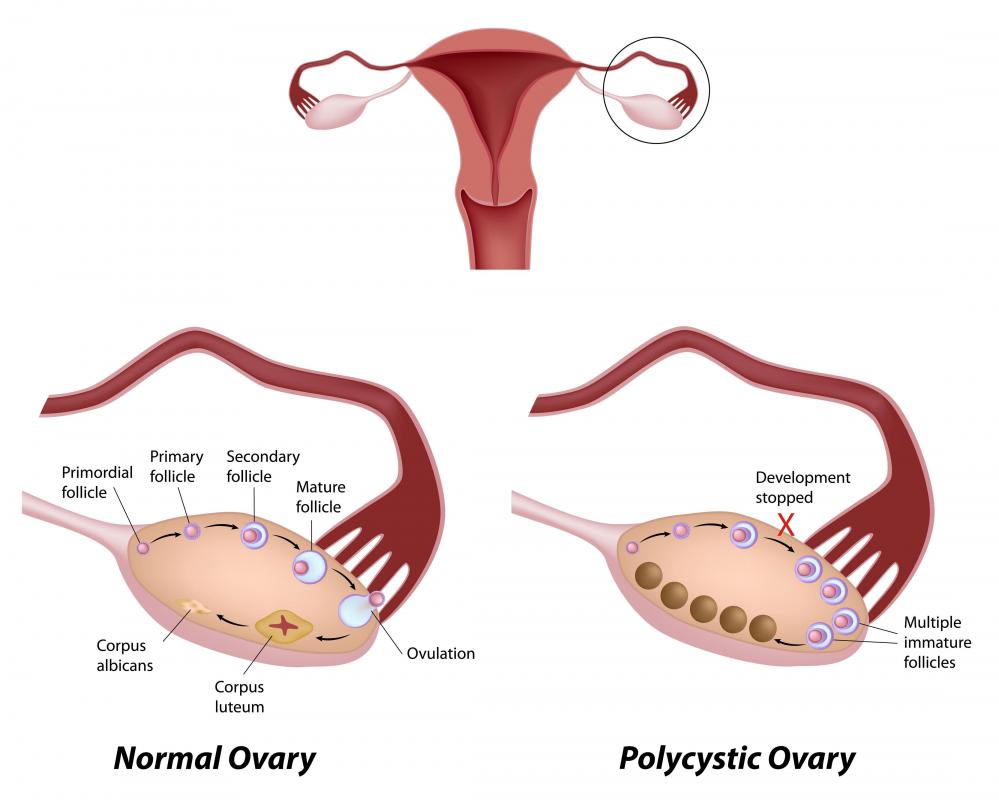At WiseGEEK, we're committed to delivering accurate, trustworthy information. Our expert-authored content is rigorously fact-checked and sourced from credible authorities. Discover how we uphold the highest standards in providing you with reliable knowledge.
What is a Polycystic Ovarian Syndrome Diet?
Polycystic ovarian syndrome, or PCOS, is a hormonal disorder that can cause a variety of negative side effects. The disorder often leads to insulin resistance, which impairs the body's ability to regulate blood sugar levels and may even lead to type 2 diabetes. Patients with PCOS often experience significant weight gain and are either overweight or obese. They may be at greater risk for developing heart disease. All of these issues can be impacted by the patients' diets; therefore, they may benefit from following a polycystic ovarian syndrome diet.
As with most diets, a polycystic ovarian syndrome diet requires an overall decrease in calories, which is essential for weight loss. Some PCOS sufferers maintain a normal weight and may not need to significantly alter their caloric intake; however, a majority of women with this disorder do have a weight problem, so this is often an important aspect of the diet plan. Patients should review their personal recommended daily calorie intake and then calculate a reasonable caloric decrease which will help them reach their weight loss goals without being too extreme.

Those following a polycystic ovarian syndrome diet will typically need to avoid consumption of too many carbohydrates, especially processed varieties such as white bread, pasta, or rice, as well as refined sugars. All of these foods cause rapid increases in blood sugar levels, which will in turn impact insulin levels. Women with PCOS will typically benefit from decreasing their overall carbohydrate intake. When they do eat carbohydrates, women should eat whole grains, which have a less extreme effect on blood sugar.

Another important facet of a polycystic ovarian syndrome diet is reducing fat intake. Some low carbohydrate diets replace carbs with a significant amount of fat; due to the increased risk of heart disease with PCOS, however, this is not a recommended approach. Patients should keep saturated fat out of their diets as much as possible, and try get protein from sources such as lean meats and soy. They should also find sources of healthier monounsaturated and omega 3 fats, including nuts, olive oil, and fish.

In addition to eating according to a polycystic ovarian syndrome diet, those with PCOS will also benefit from following an exercise routine. Doing so will help burn extra calories and may help improve metabolism. Both aerobic exercise and strength training should be included to achieve the most benefits.
AS FEATURED ON:
AS FEATURED ON:

















Discuss this Article
Post your comments